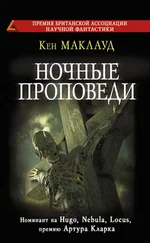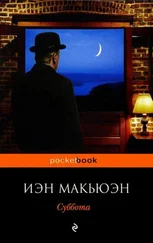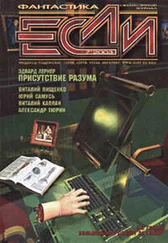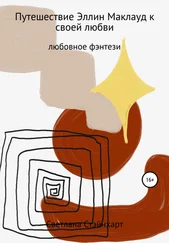Иэн Маклауд - Breathmoss
Здесь есть возможность читать онлайн «Иэн Маклауд - Breathmoss» весь текст электронной книги совершенно бесплатно (целиком полную версию без сокращений). В некоторых случаях можно слушать аудио, скачать через торрент в формате fb2 и присутствует краткое содержание. Жанр: Фантастика и фэнтези, на английском языке. Описание произведения, (предисловие) а так же отзывы посетителей доступны на портале библиотеки ЛибКат.
- Название:Breathmoss
- Автор:
- Жанр:
- Год:неизвестен
- ISBN:нет данных
- Рейтинг книги:4 / 5. Голосов: 1
-
Избранное:Добавить в избранное
- Отзывы:
-
Ваша оценка:
- 80
- 1
- 2
- 3
- 4
- 5
Breathmoss: краткое содержание, описание и аннотация
Предлагаем к чтению аннотацию, описание, краткое содержание или предисловие (зависит от того, что написал сам автор книги «Breathmoss»). Если вы не нашли необходимую информацию о книге — напишите в комментариях, мы постараемся отыскать её.
Breathmoss — читать онлайн бесплатно полную книгу (весь текст) целиком
Ниже представлен текст книги, разбитый по страницам. Система сохранения места последней прочитанной страницы, позволяет с удобством читать онлайн бесплатно книгу «Breathmoss», без необходимости каждый раз заново искать на чём Вы остановились. Поставьте закладку, и сможете в любой момент перейти на страницу, на которой закончили чтение.
Интервал:
Закладка:
Finally, she stood up and moved toward the courtyard. It was colder today than it had ever been, and the rain had greyed and thickened. It gelled and dripped from the gutters in the form of something she supposed was called sleet, and which she decided as it splattered down her neck that she would hate forever. It filled the bowl of the fountain with mucus-like slush, and trickled sluggishly along the lines of the drains. The air was full of weepings and howlings. In the corner of the courtyard, there lay a small black heap.
Sprawled half in, half out of the poor shelter of the arched cloisters, more than ever like a flightless bird, the tariqua lay dead. Her clothes were sodden. All the furnace heat had gone from her body, although, on a day such as this, that would take no more than a matter of moments. Jalila glanced up though the sleet toward the black wet stone of the latticed mashrabiya from which she and Kalal had first spied on the old woman, but she was sure now that she was alone. People shrank incredibly when they were dead — even a figure as frail and old as this creature had been. And yet, Jalila found as she tried to move the tariqua's remains out of the rain, their spiritless bodies grew uncompliant; heavier and stupider than clay. The tariqua's face rolled up toward her. One side was pushed in almost unrecognizably, and she saw that a nearby nest of ants were swarming over it, busily tunneling out the moisture and nutrition, bearing it across the smeared paving as they stored up for the long winter ahead.
There was no sign of the scarab.
-=*=
5.
This, for Jalila and her mothers, was the Season of Farewells. It was the Season of Departures.
There was a small and pretty onion-domed mausoleum on a headland overlooking Al Janb, and the pastures around it were a popular place for picnics and lovers' trysts in the Season of Summers, although they were scattered with tombstones. It was the ever-reliable Lya who saw to the bathing and shrouding of the tariqua's body, which was something Jalila could not possibly face, and to the sending out though the null-space between the stars of all the necessary messages. Jalila, who had never been witness to the processes of death before, was astonished at the speed with which everything was arranged. As she stood with the other mourners on a day scarfed with cloud, beside the narrow rectangle of earth within which what remained of the tariqua now lay, she could still hear the wind booming over the empty qasr, feel the uncompliant weight of the old woman's body, the chill speckle of sleet on her face.
It seemed as if most of the population of Al Janb had made the journey with the cortege up the narrow road from the town. Hard-handed fisherwomen. Gaudily dressed merchants. Even the few remaining aliens. Nayra was there, too, a beautiful vision of sorrow surrounded by her lesser black acolytes. So was Ibra. So, even, was Kalal. Jalila, who was acknowledged to have known the old woman better than anyone, said a few words that she barely heard herself over the wind. Then a priestess who had flown in specially from Ras pronounced the usual prayers about the soul rising on the arms of Munkar and Nakir, the blue and the black angels. Looking down into the ground, trying hard to think of the Gardens of Delight that the Almighty always promised her stumbling faithful, Jalila could only remember that dream of her own burial: the soil pattering on her face, and everyone she knew looking down at her. The tariqua, in one of her many half-finished tales, had once spoken to her of a world upon which no sun had ever shone, but which was nevertheless warm and bounteous from the core of heat beneath its surface, and where the people were all blind, and moved by touch and sound alone; it was a joyous place, and they were forever singing. Perhaps, and despite all the words of the Prophet, Heaven, too, was a place of warmth and darkness.
The ceremony was finished. Everyone moved away, each pausing to toss in a damp clod of earth, but leaving the rest of the job to be completed by a dull-minded robotic creature, which Pavo had had to rescue from the attentions of the younger children, who, all though the long Habaran summer, had ridden around on it. Down at their haramlek, Jalila's mothers had organized a small feast. People wandered the courtyard, and commented admiringly on the many changes and improvements they had made to the place. Amid all this, Ibra seemed subdued — a reluctant presence in his own body — while Kalal was nowhere to be seen at all, although Jalila suspected that, if only for the reasons of penance, he couldn't be far away.
Of course, there had been shock at the news of the tariqua's death, and Lya, who had now become the person to whom the town most often turned to resolve its difficulties, had taken the lead in the inquiries that followed. A committee of wisewomen was organized even more quickly than the funeral, and Jalila had been summoned and interrogated. Waiting outside in the cold hallways of Al Janb's municipal buildings, she'd toyed with the idea of keeping Abu's disappearance and her suspicions of Kalal out of her story, but Lya and the others had already spoken to him, and he'd admitted to what sounded like everything. He'd ridden to the qasr on Abu to remonstrate with the tariqua. He'd been angry, and his mood had been bad. Somehow, but only lightly, he'd pushed the old woman, and she had fallen badly.
Then, he panicked. Kalal bore responsibility for his acts, it was true, but it was accepted that the incident was essentially an accident. Jalila, who had imagined many versions of Kalal's confrontation with the tariqua, but not a single one that seemed entirely real, had been surprised at how easily the people of Al Janb were willing to absolve him. She wondered if they would have done so quite so easily if Kalal had not been a freak — a man. And then she also wondered, although no one had said a single word to suggest it, just how much she was to blame for all of this herself.
She left the haramlek from the funeral wake and crossed the road to the beach. Kalal was sitting on the rocks, his back turned to the shore and the mountains. He didn't look around when she approached and sat down beside him. It was the first time since before the tariqua's death that they'd been alone.
"I'll have to leave here," he said, still gazing out toward the clouds that trailed the horizon.
"There's no reason-"
"— no one's asked me and Ibra to stay. I think they would, don't you, if anyone had wanted us to?
That's the way you women work."
"We're not you women, Kalal. We're people."
"So you always say. And all Al Janb's probably terrified about the report they've had to make to that thing you're joining — the Church of the Gateway. Some big, powerful body, and — whoops — we've killed one of your old employees…."
"Please don't be bitter."
Kalal blinked and said nothing. His cheeks were shining.
"You and Ibra — where will you both go?"
"There are plenty of other towns around this coast. We can use our boat to take us there before the ice sets in. We can't afford to leave the planet. But maybe in the Season of False Springs, when I'm a grown man and we've made some of the proper money we're always talking about making from harvesting the tideflowers — and when word's got around to everyone on this planet of what happened here. Maybe then we'll leave Habara." He shook his head and sniffed. "I don't know why I bother to say maybe…."
Jalila watched the waves. She wondered if this was the destiny of all men; to wander forever from place to place, planet to planet, pursued by the knowledge of vague crimes that they hadn't really committed.
"I suppose you want to know what happened?"
Jalila shook her head. "It's in the report, Kalal. I believe what you said."
Читать дальшеИнтервал:
Закладка:
Похожие книги на «Breathmoss»
Представляем Вашему вниманию похожие книги на «Breathmoss» списком для выбора. Мы отобрали схожую по названию и смыслу литературу в надежде предоставить читателям больше вариантов отыскать новые, интересные, ещё непрочитанные произведения.
Обсуждение, отзывы о книге «Breathmoss» и просто собственные мнения читателей. Оставьте ваши комментарии, напишите, что Вы думаете о произведении, его смысле или главных героях. Укажите что конкретно понравилось, а что нет, и почему Вы так считаете.












